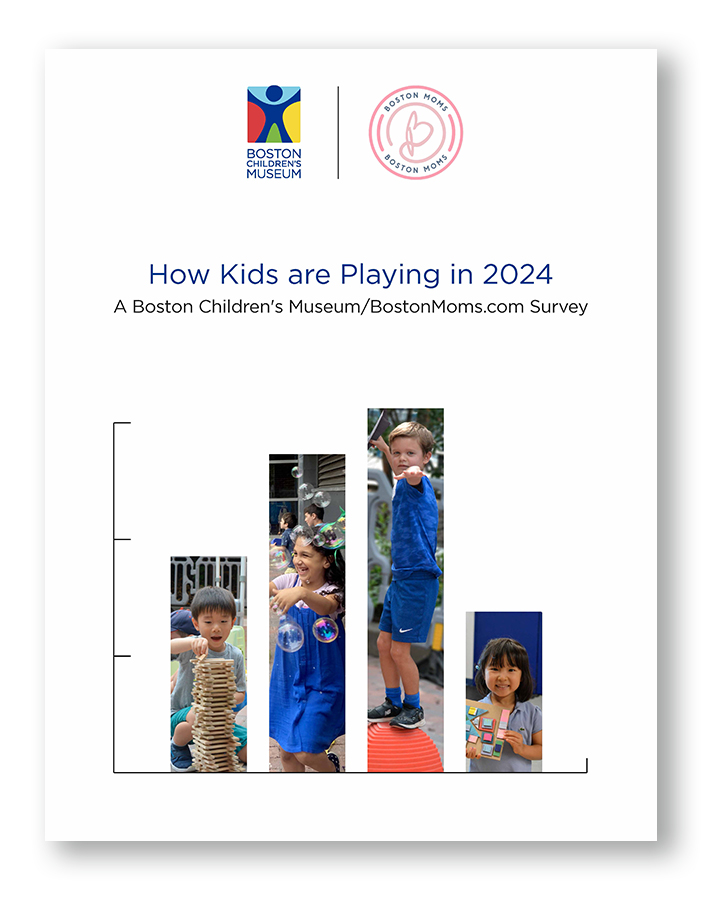
Playtime has undergone dramatic change in the last few decades, with much less time devoted to traditional play, and more time directed to academic lessons and the use of media – television, video games, and computer and smartphone applications. Childhood has been sped up, with accelerated expectations for many and overwhelming obstacles for others—in both cases playtime suffers. The Museum’s historic appeal, rooted in hands-on and child-centered experiences, promotes play as a key way to help children thrive as they grow. The Museum sees play having its own “means” and “ends,” and taps into children’s innate desire to play to foster learning and healthy development. With this in mind, the Museum wanted to learn more about how children actually are playing in 2024, and the attitudes of parents and adults toward play.
The Museum partnered with BostonMoms.com and invited parents to participate in a survey conducted during the period of March through July 2024 and to share how their children were playing. The survey was promoted through advertising, social media, and Museum and BostonMoms.com communication channels. The survey was self-selecting and anonymous, with participants voluntarily choosing to participate rather than being identified or selected based on a pre-determined set of criteria. The survey was completed by 701 people, with over 90% being from Massachusetts, 50% from Greater Boston, and 24% from the City of Boston. The results show that families place a high priority on play and see it as essential to their child’s healthy development. However, parents are also concerned that they do not have enough time to play with their child and that their child does not have enough opportunities to play with other children.
Of those completing the survey, 89% said play was essential to their child’s healthy development and 88 % said it was essential to their child’s learning. Parents also said there children have ample time to play, with only 12% indicating their child did not have enough time to play. However, a significant number, 38%, said they do not have enough time to play with their child, and 37% said their child did not have enough opportunities to play with other children.
Results showed children are engaging in varied kinds of play activities during a typical week, such as pretend play (57%), outdoor play (91%), playing with other children who were not siblings (70%), playing with pets or animals (45%), playing alone (92%), playing with adults (87%), at home activities such as cooking and gardening (67%), and doing arts and crafts (65%).
Other key findings from the survey were:
- 97% agreed (72% strongly) that play is strongly linked to getting along and working with others.
- 70% agreed (30% strongly) that physical safety is a big concern when thinking about where and how their child plays.
- 80% agreed (36% strongly) that safety, in respect to negative or harmful messages that their children could experience, was a big concern.
- 96% agreed (57% strongly) that it is good for their child to take age-appropriate risks while playing.
- 76% agreed (39% strongly) that technology is taking away from traditional kinds of play.

